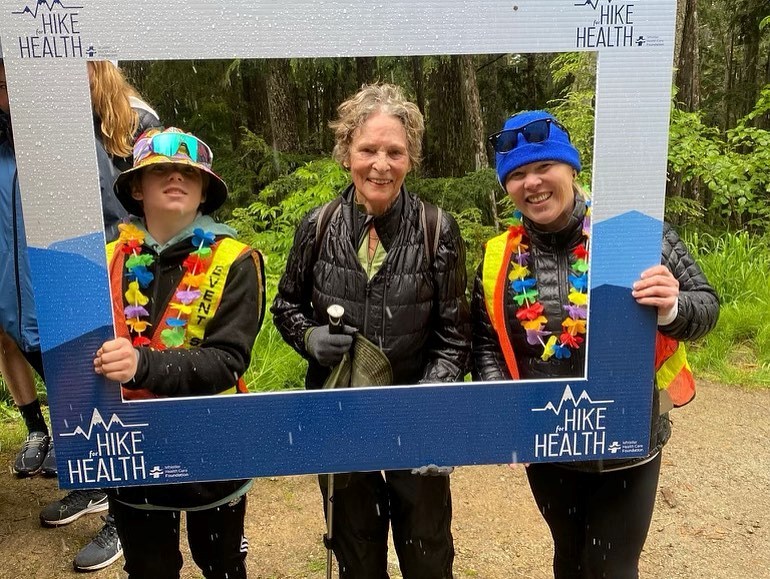Proceeds from this year's event will go towards mental health resources.
This year's Hike for Health's goal is healthy minds and spirits.
Hosted by the Whistler Healthcare Foundation (WHCF), this third annual event aims to raise awareness of mental health services in Whistler. Hikers will meet at Blackcomb Base at 9:30am on June 16th to hike the strenuous 6.2km Ascent Trail, covering three trails – Little Burn, Big Burn and Heartburn (snow melt permitting) – and the event also includes an optional gondola ride. Registration is currently open and costs $40 for adults and $25 for children. Tickets include a Whistler Blackcomb sightseeing day pass.
Jen Black, vice chair of the WHCF board of directors, said the choice to fund mental health was driven by a clear need in the community and requests for funding from local service providers.
“We know there's been some crisis in this community, there's been loss, people are suffering, so let's plan this event this year to make a real difference in the mental health supports and efforts that are available in our community,” Black said.
The funds will be distributed after the Whistler Community Services Society (WCSS), local experts and counsellors determine how to most effectively allocate the funds.
This year's goal is $100,000, but WHCF has already raised about $70,000 and is close to reaching the finish line.
Those who can afford to support can donate more and receive a tax deduction, with options ranging from $500 to $10,000. Those who are considered “trailblazers” will be recognized, signs acknowledging their donations will be placed along the trail, and donors will receive a gift.
“This is a great way to do our little bit to help achieve our goal,” Black said.
The event is sponsored by the Touchet family and hosted by Whistler Blackcomb.
This year, hikers can expect some on-course activity, including surprise musical acts playing along the trail.
Mental Health in Whistler
WCSS Executive Director Jackie Dickinson will also be speaking at the event.
The social services provider provides frontline services in Whistler through its outreach team, as well as connecting people with services and resources related to housing, financial and food security.
People between the ages of 30 and 39 make up the largest proportion of those who receive WCSS mental health services, the same group that also makes up the largest proportion of food bank users. Dickinson pointed to structural causes.
“Lower wages, lack of housing affordability, not being able to consider buying a home in their lifetime, not being able to consider expanding their family due to high childcare costs and limited access to childcare facilities – many are struggling,” Dickinson said. “These are just some of the surface issues as to why people in this age group receive more support, but they can't be ignored.”
Another factor affecting Whistler's mental health is the paradox that extreme sports provide both a healthy outlet and the potential for unhealthy escapism, says long-time local counsellor Greg McDonnell.
“It can exist on a continuum of the tools we use to numb ourselves, and it can also exist on a continuum of health — how we approach it,” he said.
One of the strategies McDonnell highlighted was understanding individual needs and how people can prioritise their health.
“I think every individual needs to think about what they need to really take care of themselves. Having social connection, having purpose and meaning, having a sense of purpose in life, managing drugs and alcohol – these are key factors in looking after our mental health,” he said.
One way we address individual needs is by spending time in the community during Father's Day “Hike for Health.”
Please see here for the detail.



